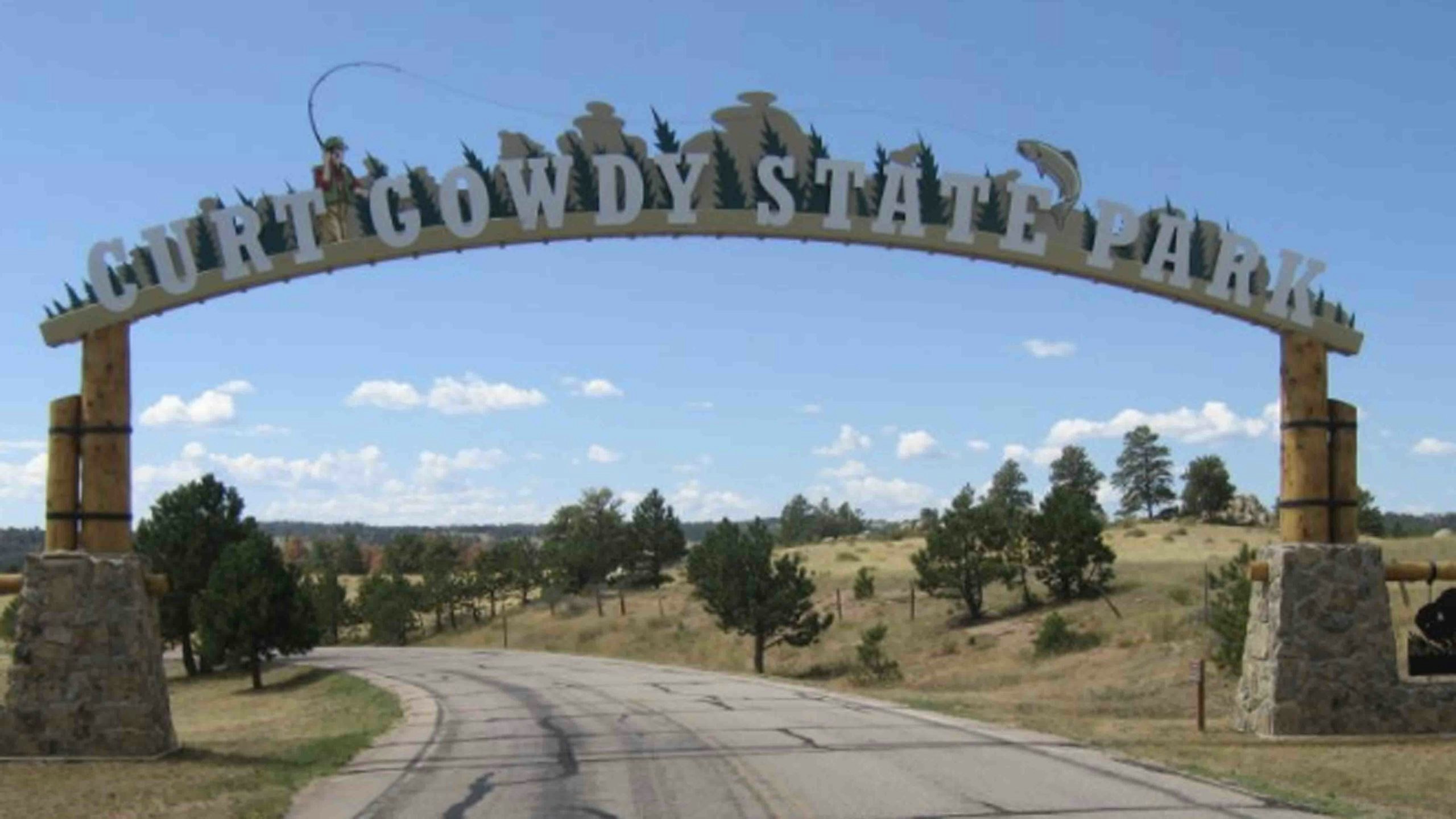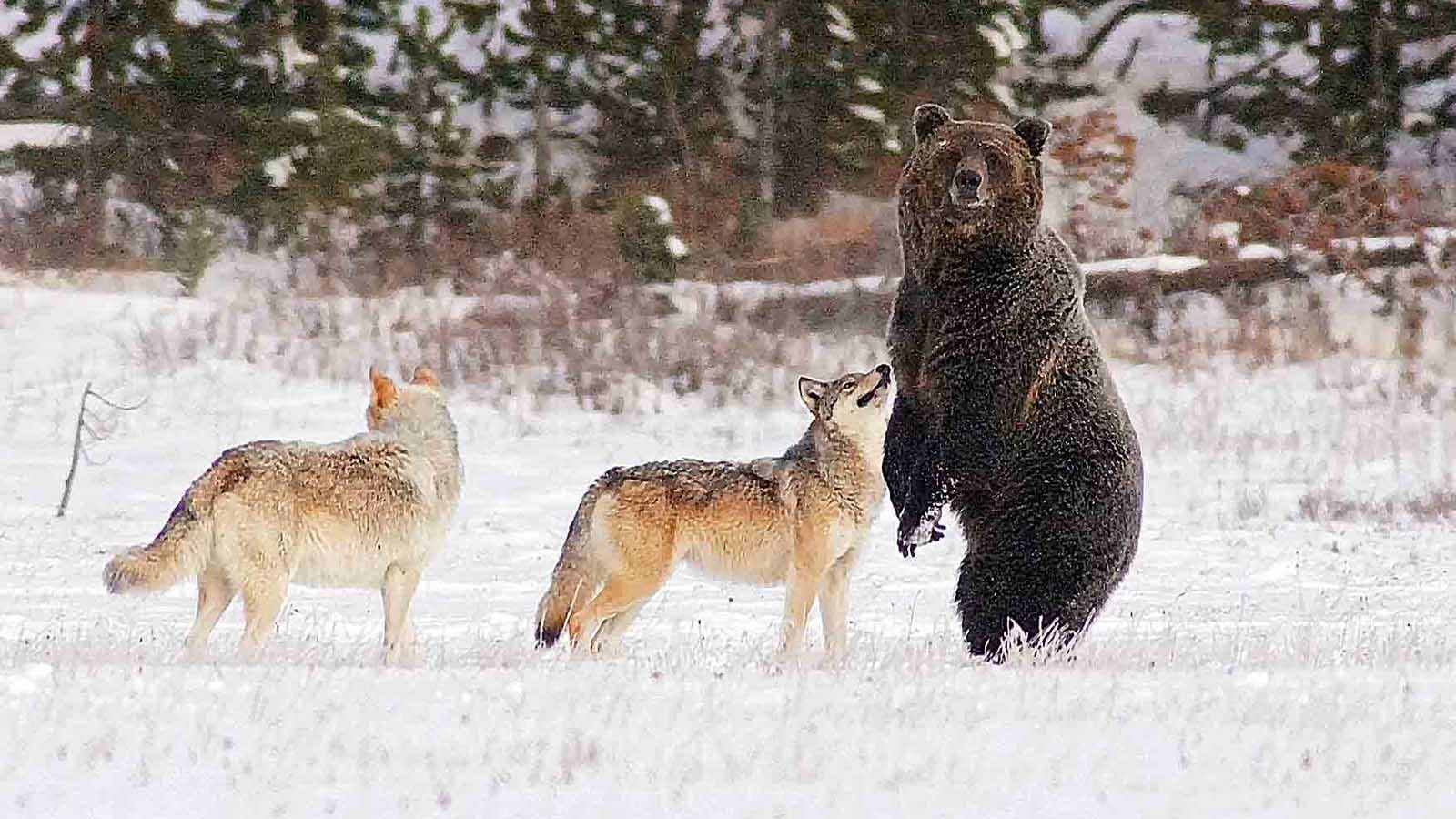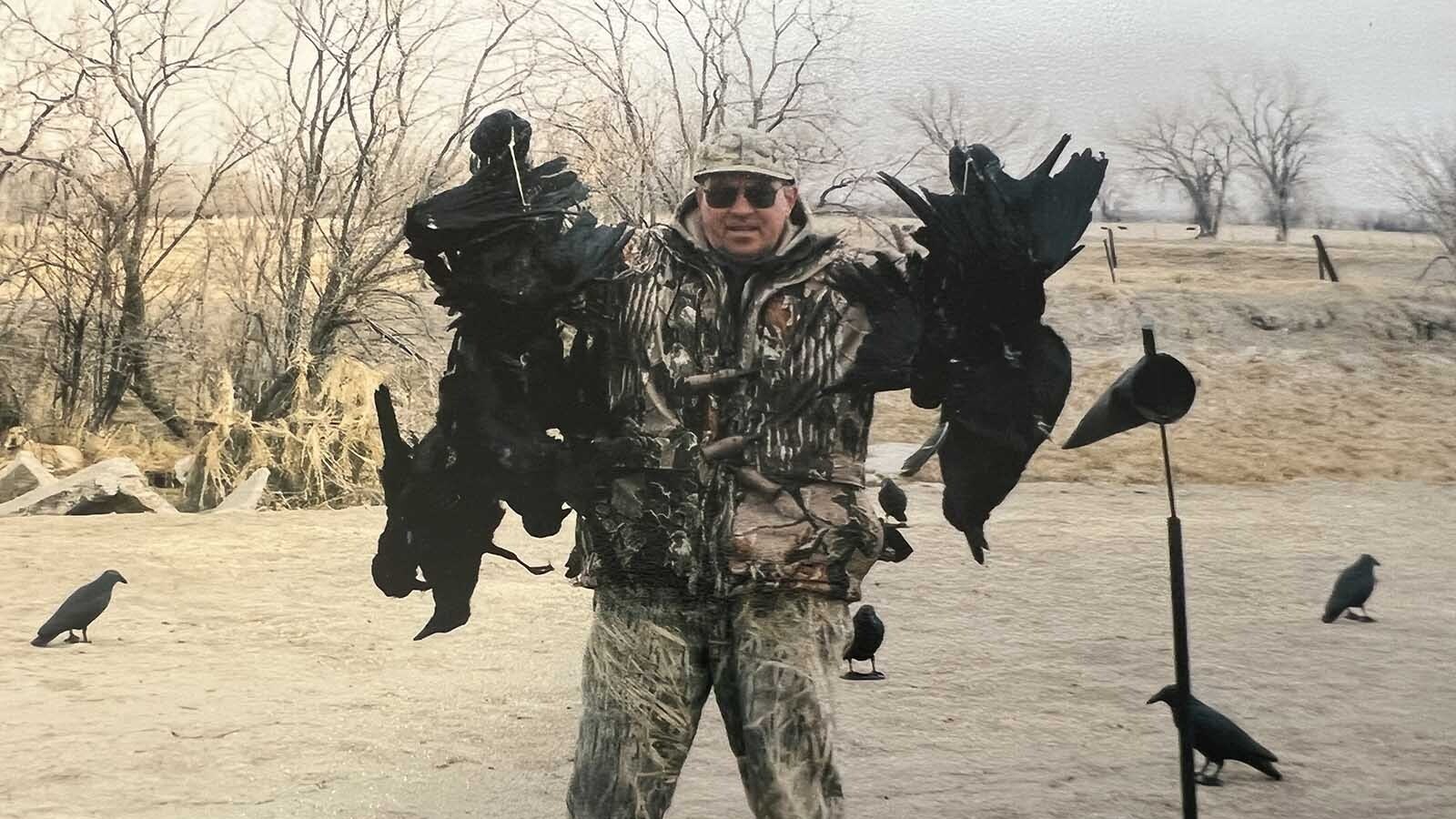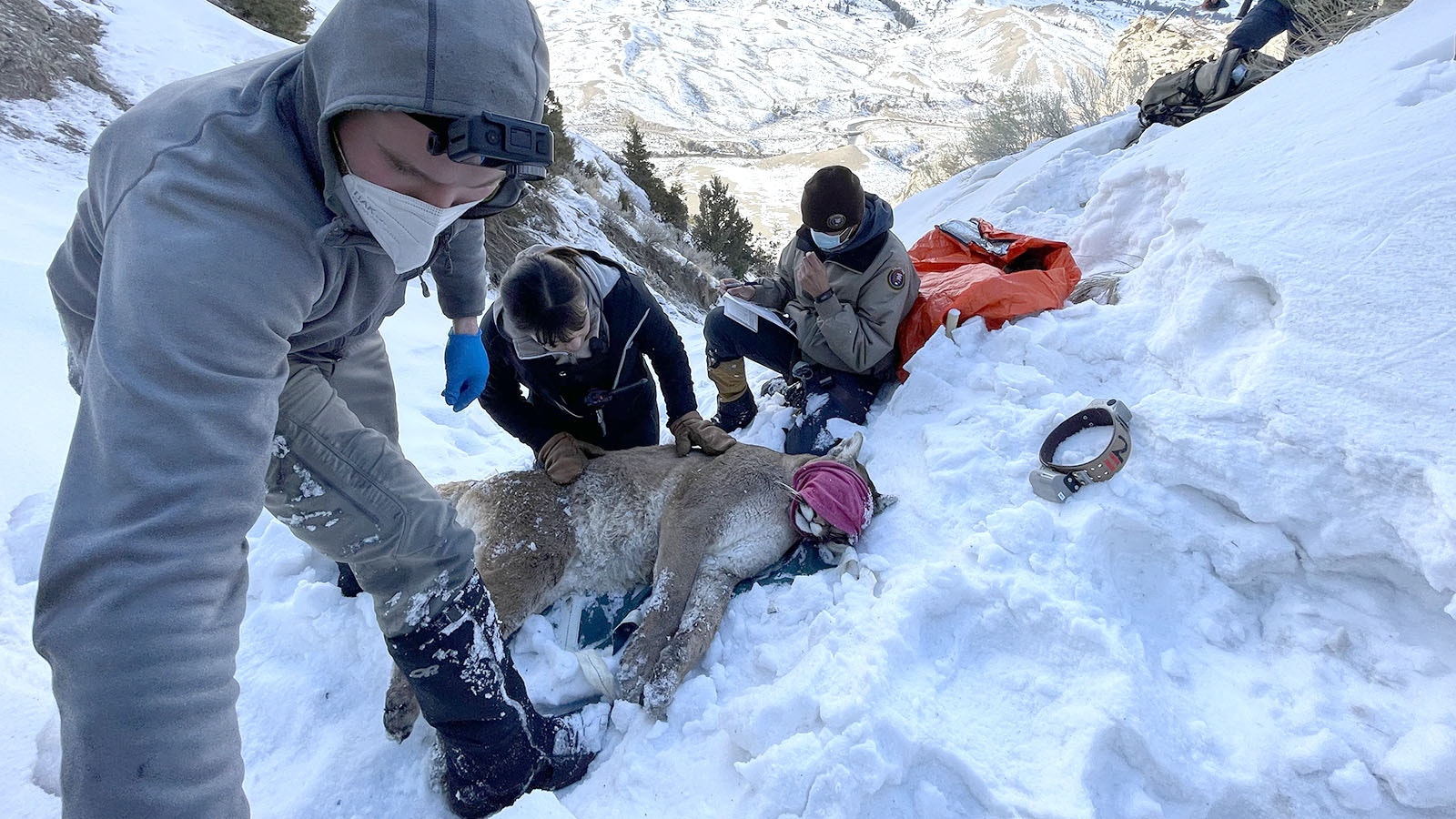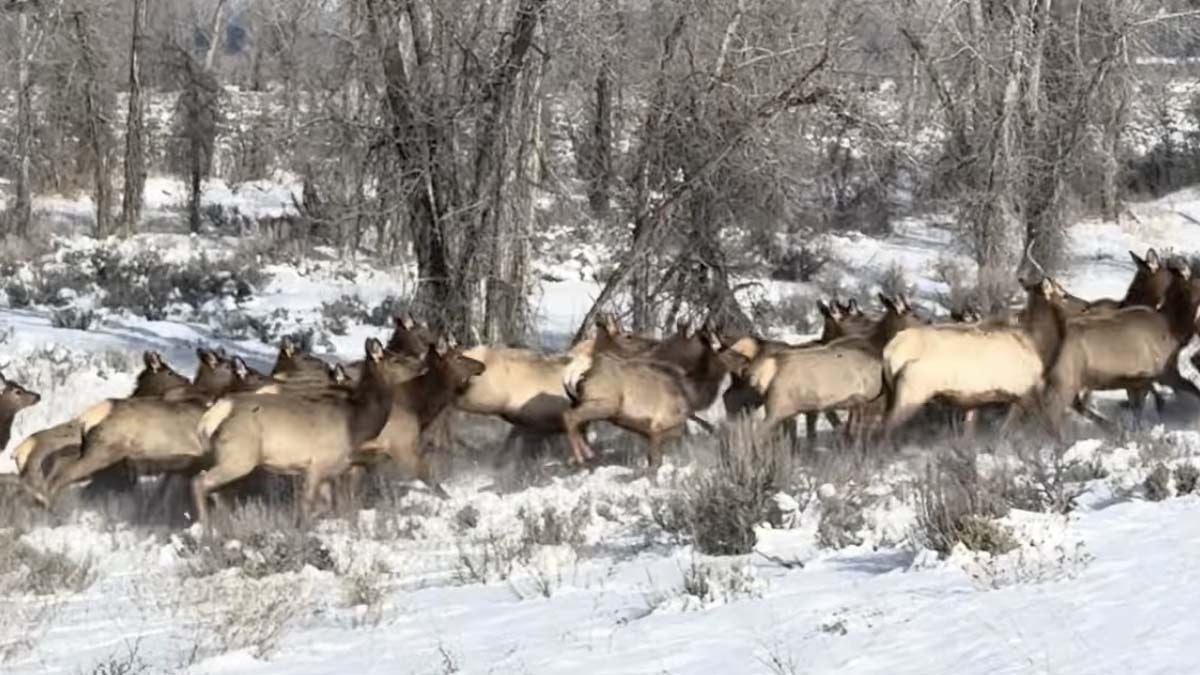A bill that sought $40 million from the state’s General Fund for a grant program to build safe pedestrian and bicycle routes, as well as more soft-surface trails throughout Wyoming, was narrowly defeated Thursday despite arguments from proponents that the projects would improve safety and could help quickly pay for themselves by increasing tourism.
Members of the House Travel, Recreation, Wildlife and Cultural Resources Committee ultimately voted 5-4 against House Bill 48.
Effort To Juice Tourism
Outdoor Recreation Office and Division of State Parks Deputy Director Dave Glenn highlighted studies by Oregon showing that people who visited communities for their outdoor recreation or trails typically spent $116 per person and an average of $744 per trip.
A similar study in Jackson found people spent an average of $168 per person.
“By building those, we’re helping, you know, we’re reaching our goals and our mission of improving communities and enriching lives as we’re moving forward,” he said.
The huge popularity of trails and safe biking paths was apparent in a recent offering of $12 million in grant money for outdoor recreation opportunities in Wyoming, Glenn said. State Parks received far more proposals than it has funding for – $72 million in requests for projects. More than half were proposals to build trails.
Curt Gowdy State Park in southeast Wyoming is a good example of the difference trails can make in attracting visitors, Glenn said.
In 2008, 50,000 people visited the site, he said. After improvements to the park’s trails, that visitation has increased to 518,000 visits last year.
“Sixty percent of those people came for the trails,” Glenn said.
Safety Also Part of the Bill
But building new trails was only one part of the bill. Of the $40 million earmarked in HB 48, the bulk – $36 million – would have gone to the Wyoming Department of Transportation for safer pedestrian and biking pathways.
Michael Kusiek of Wyoming Pathways told the committee what the money would mean for a community like Lander.
“Our Safe Routes to Schools plan in Lander will take another 10 years to complete if under the current system we are able to secure a grant every year,” he told lawmakers.
That money is needed now, though, to finish incomplete sidewalks in neighborhoods across the community.
“We have had 27 inches of snow, plus 7 inches of snow just in the last two weeks,” he said. “We have a lot of kids who are going to school and they’re walking on a sidewalk, and then they’re jumping out into snow lanes to finish their walk because we need to complete our sidewalks.”
Lives Being Lost
Many crosswalks also don’t follow best practices, Kusiek said. That may have contributed to the death of a young girl last year in Lander who was riding her bicycle to school.
“These kinds of tragedies, even one is too many, and we need to do something to make sure that gets improved quickly,” he said.
Kusiek told Cowboy State Daily he was very disappointed with the defeat of HB 48, but said Wyoming Pathways and other partners on the effort are not giving up. There are other bills this session of the Wyoming Legislature where money for safe biking and pedestrian routes could make sense.
“These facilities and amenities are needed across the state for safety purposes for school children, and for older folks in particular,” he said. “We’ve got lots of demand for these facilities, and we just don’t have the funding. So we’re going to keep working.”

Questions About Costs
Lawmakers expressed skepticism with several aspects of the bill.
Rep. John Winter, R-Thermopolis, wanted to know who would be responsible for buying easements for the projects.
He was concerned about the overall cost of the program and ongoing maintenance of projects as well.
“This $40 million throws me for a loop,” he said. “I just can’t really understand how we, how the taxpayer, can be responsible for that kind of money.”
Flaws or faults in a newly built trail are generally the responsibility of the contractor for a period of years after it’s built, Kusiek said, while Glenn suggested that ongoing maintenance generally becomes the responsibility of whatever entity requested the grant. These are generally handled as part of the application process.
Members of the committee also asked about ongoing support for projects.
Rep. Donald Burkhardt, R-Rawlins, asked if there would be any fees for using the completed trails or projects, and Rep. Cyrus Western, R-Big Horn, questioned taking the $40 million from the General Fund. He would have preferred if the plan included a trust or some other funding mechanism that would create a sustainable, ongoing grant program rather than a one-time appropriation from the General Fund.
What About Bentonville?
Another thing Burkhardt wanted to know is whether any of the money would be used to create a biking trail system like that in Bentonville, Arkansas, which has successfully positioned itself as an international nexus in the mountain biking world.
Wyoming Office of Outdoor Recreation Manager Patrick Harrington responded that the purpose of the program outlined in HB 48 wasn’t to “draw a name out of a hat and say, ‘Kemmerer, today is your lucky day, we’re going to, you know build you 100 miles of mountain bike trails.’”
That’s not the point behind the community collaboratives, nor the county-by-county surveys that helped shape the bill, he said.
“The purpose behind those community collaboratives is to really understand, from a grassroots level, what that community desires,” he said.
He added that he has seen studies that show what Bentonville has and knows that it has brought significant economic impact beyond the trails themselves, extending to restaurants, hospitality and tourism.
“But I think Wyoming is its own state,” he said. “We have to do things our own way, and that is the benefit of those community collaboratives.”
How The Voted
House Bill failed in the House Travel, Recreation, Wildlife and Cultural Resources Committee on a 5-4 vote. The nays were from Reps. Abby Angelos, R-Gillette; Donald Burkhart Jr.; R-Rawlins; Daniel Singh, R-Cheyenne; Cyrus Western, R-Big Horn; and John Winter, R-Thermopolis.

